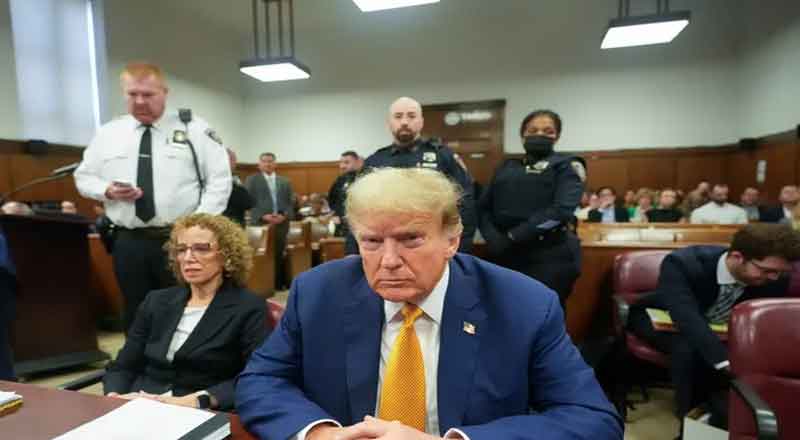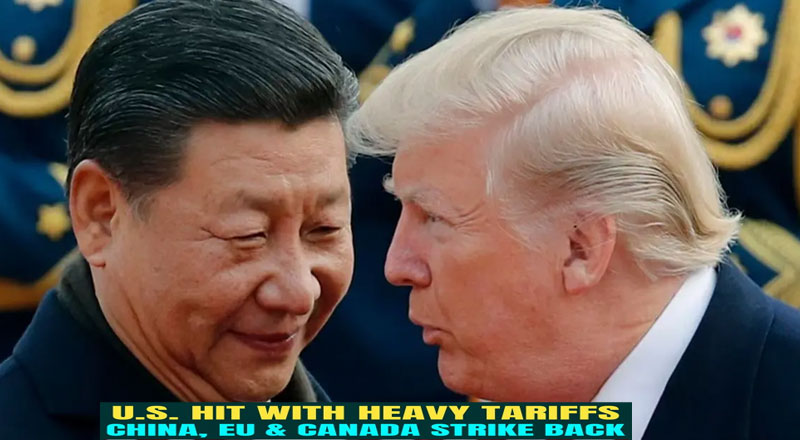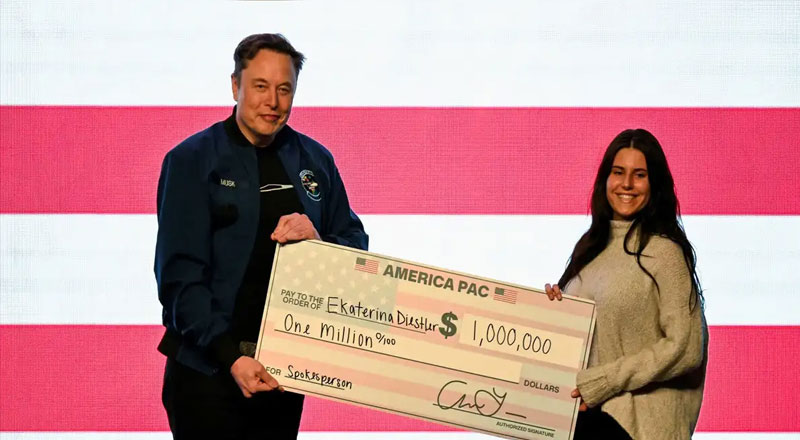- Adult film star Stormy Daniels took the stand on Tuesday, delivering explosive testimony in the hush money trial involving former US President Donald Trump.
- With allegations of coercion, deceit, and clandestine payments at the forefront, Daniels’ revelations shed new light on a scandal that has captivated the nation.
- Daniels recounted a harrowing encounter with Trump in 2006, alleging that Trump made disparaging remarks about her background before engaging in a sexual liaison.
- Daniels testified that she felt powerless as Trump allegedly prevented her from leaving the room, leading to a state of disorientation and distress.
- Trump, who has vehemently denied any sexual encounter with Daniels, maintained a stoic demeanor during her testimony.
- Central to the trial is the alleged $130,000 payment to Daniels in the waning days of the 2016 presidential race, ostensibly to secure her silence about the encounter.
- The courtroom drama surrounding Trump’s alleged misconduct underscores the intersection of power, privilege, and accountability in American politics.
In a riveting courtroom drama unfolding in Manhattan, adult film star Stormy Daniels took the stand on Tuesday, delivering explosive testimony in the hush money trial involving former US President Donald Trump. With allegations of coercion, deceit, and clandestine payments at the forefront, Daniels’ revelations shed new light on a scandal that has captivated the nation.
Daniels recounted a harrowing encounter with Trump in 2006, alleging that the then-real-estate mogul made disparaging remarks about her background before engaging in a sexual liaison. In a startling revelation, she claimed that Trump callously remarked, “This is the only way you’re getting out of the trailer park,” prior to their encounter in his hotel suite.
Detailing her upbringing as the daughter of a low-income single mother and her entry into the adult entertainment industry, Daniels painted a vivid picture of her journey leading up to the fateful meeting with Trump at a Lake Tahoe golf tournament. Trump, a celebrity host of the popular reality TV show “The Apprentice” at the time, wielded considerable influence and authority, setting the stage for their consequential interaction.
Daniels testified that she felt powerless as Trump allegedly prevented her from leaving the room, leading to a state of disorientation and distress. Recalling the encounter, she stated, “I blacked out… I woke up on the bed with my clothes off,” indicating a lack of consent and agency in the situation. Notably, Daniels asserted that Trump did not use a condom during their brief liaison, further highlighting the disregard for her well-being.
Trump, who has vehemently denied any sexual encounter with Daniels, maintained a stoic demeanor during her testimony. His defense team has sought to undermine Daniels’ credibility, suggesting ulterior motives such as a desire for a role on “The Apprentice.”
Central to the trial is the alleged $130,000 payment to Daniels in the waning days of the 2016 presidential race, ostensibly to secure her silence about the encounter. Prosecutors contend that the payment, facilitated by Trump’s personal attorney Michael Cohen, was improperly logged as legal fees to conceal its true purpose.
As the trial unfolds, Trump faces mounting scrutiny and legal jeopardy, with implications for his political ambitions. With the looming specter of the November 5 election and the backdrop of past controversies, including the infamous “Access Hollywood” tape, the stakes are high for both Trump and the prosecution.
The courtroom drama surrounding Trump’s alleged misconduct underscores the intersection of power, privilege, and accountability in American politics. As Daniels’ testimony reverberates through the halls of justice, the nation watches with bated breath, awaiting the outcome of this high-profile legal battle.
Moreover, Daniels’ testimony serves as a poignant reminder of the broader societal issues at play, including the treatment of women in positions of vulnerability and the integrity of democratic processes in the face of alleged misconduct by public figures. As the trial unfolds, it prompts a larger conversation about ethics, transparency, and the rule of law in the highest echelons of government.
(With inputs from agencies





